Have you ever found yourself calling someone a narcissist in a fit of frustration or anger? I assure you, you probably have. This can be as casual as an online retort towards a troll or banter with a friend. It is easy to do this because we’ve normalised the use and misuse so much that we don’t even think about it. This was the case until I found myself on the receiving end of what I believed was a defamatory word.
Me, a narcissist? Never!
I thought back to the many times I’d heard the word and the implications I believed came with it, to rants from my sister complaining about her narcissistic boyfriend and what an asshole he was. Was I an asshole? Then I started reading up on it—this was an exercise in vanity because I valued people’s opinion of me so much, so it bothered me. I had to understand what I had done to warrant this slander, and that’s when I came upon this information.
Narcissism, often considered a casual insult, is more than a personality trait or a derogatory term. It’s a complex mental illness deserving of understanding and empathy rather than this dismissal. Yet, this word has become so normalised in our society that its gravity is often overlooked. But what if we paused to educate ourselves? What if we delved deeper into the nuances of narcissism and its impact?
I had a chat with my twenty-year-old sister, whose identity will remain anonymous for this article, and a mental health professional from the campus clinic, Sister Smangele, to try and humanise narcissism and provide it with the importance it deserves.
In one of her rants, my sister said, “My boyfriend is such a narcissist; I can’t do anything without him wanting to know. He always thinks I do things to piss him off, to get under his skin. I am so irritated!”
This, I would later realise, was kind of dangerous. It causes harm because it trivialises the urgency of narcissism, something that Sr. Smangele had a point to make on how “The term narcissist is usually used to describe someone vain, who acts selfishly and proud, which is different to a person with a narcissistic personality disorder.”
What is the difference?
A narcissistic personality disorder is a diagnosable mental health condition. It is for people who exhibit over-inflated self-perception, the need to be admired and worshipped, and often lack empathy. The difference is that people considered vain don’t always turn out to be narcissistic. Having self-worth is a naturally occurring human trait; it only becomes a disorder when it affects you and others badly.
Can the people diagnosed with narcissism be helped?
I think everyone can be helped. We just need to be kind and encouraging. People with narcissistic personality disorder have difficulty functioning and struggle with maintaining healthy relationships. Psychotherapy is usually the first step. If you feel like you or someone you know may have this disorder, reaching out to a mental health professional or a therapist who has been trained to work with those dealing with these feelings can help a great deal. It begins with them asking for help, which can be difficult for people with this grandiosity.
Sr. Smangele also adds that with therapy, people with narcissism are inspired to develop a healthier sense of self by examining coping mechanisms and past experiences. This is to help them learn how to empathise with themselves and others.
I believe that my sister is right about one thing: from what she’s told me, her boyfriend may display some signs of being a narcissist, but until he sees someone who will diagnose him and offer the help he needs, we can’t say. What I can say with a definitive stand, though, is that he’s an asshole, and that can often be confused with this disorder. As it was with me that one time I, myself, behaved like an idiot.
How often have you found yourself labelling someone as a narcissist during moments of frustration or disagreement and, upon reflection, considered the depth and implications of such a diagnosis beyond its casual use in conversation?



